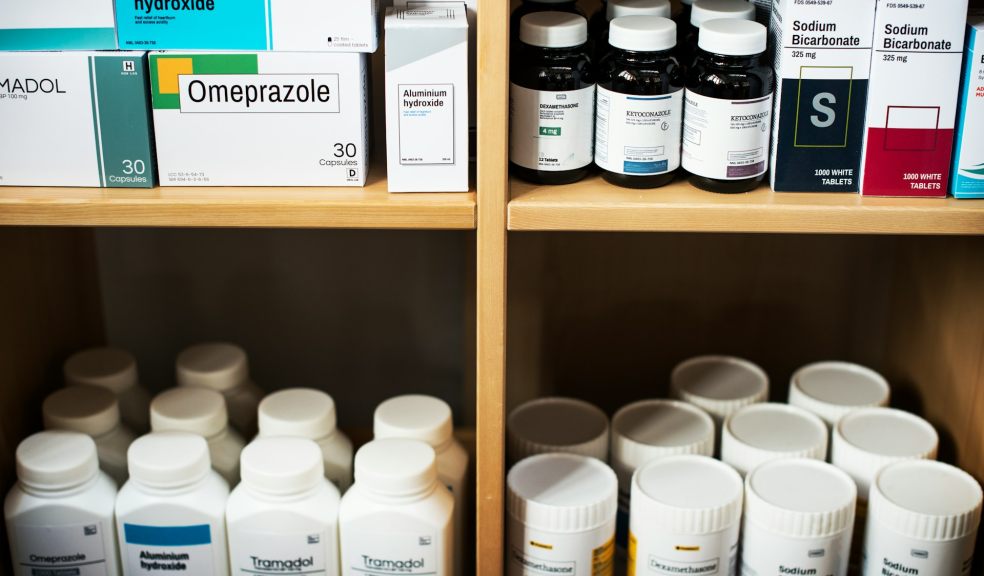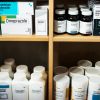
Proper Storage of Pharmaceutical Products: A Comprehensive Guide
The correct storage of pharmaceutical products is essential for maintaining their efficacy, safety, and shelf life. Medications are sensitive to environmental factors like temperature, humidity, light, and contamination. Improper storage can lead to degradation, reduced potency, or even toxic effects. This read explores best practices, regulations, and tips for storing pharmaceutical products both in healthcare settings and at home.
Why Proper Storage Matters
Storing pharmaceutical products correctly ensures they remain effective until their expiration date. Degradation of active ingredients due to improper conditions can lead to serious consequences:
Therapeutic failure: Medications may lose potency, making them ineffective in treating conditions.
Adverse reactions: Degraded drugs can cause harmful side effects.
Increased costs: Replacing compromised stock can be expensive for healthcare providers.
Regulatory violations: For pharmacies and hospitals, improper storage can lead to penalties from health authorities.
Whether in a hospital, pharmacy, or home, proper storage safeguards the health of patients and ensures compliance with safety standards.
Key Factors That Affect Drug Storage
Pharmaceuticals are susceptible to various environmental conditions. Understanding these factors helps mitigate risks.
1. Temperature
Temperature is one of the most critical factors. Many medications require storage within specific temperature ranges:
Room temperature (20–25°C or 68–77°F): Common for oral tablets and capsules.
Refrigerated (2–8°C or 36–46°F): Necessary for vaccines, insulin, and some biologics.
Freezer (below -15°C or 5°F): Required for certain vaccines and investigational drugs.
If storing peptides, avoid refreezing peptides as it can cause structural damage to the molecules.
Extreme temperatures, whether hot or cold, can alter a drug’s chemical composition.
2. Humidity
Moisture can affect the integrity of tablets and capsules by causing them to swell, dissolve, or grow mould. Desiccants and humidity-controlled environments are essential for products sensitive to moisture.
3. Light Exposure
Some medications degrade when exposed to light, especially ultraviolet rays. These are typically stored in amber-colored containers or opaque packaging to prevent photodegradation.
4. Air and Contaminants
Air exposure, especially oxygen, can oxidise certain medications. Contaminants like dust or bacteria can also compromise sterility, especially in injectable products.
Storage Guidelines in Healthcare Settings
Pharmacies, hospitals, and clinics must follow stringent protocols when storing pharmaceuticals to meet regulatory and safety standards.
1. Controlled Environments
Storage areas must be equipped with:
-Thermometers and data loggers to monitor and record temperatures.
-Climate control systems to regulate humidity.
-Backup power supplies in case of outages to maintain refrigerated storage.
2. Segregation of Products
Hazardous drugs (e.g., chemotherapy agents) must be stored separately in designated areas with clear labelling.
Look-alike/sound-alike medications should be clearly labelled and stored apart to reduce dispensing errors.
Expired or recalled medications must be isolated from active inventory to prevent accidental use.
3. Security Measures
Access to pharmaceutical storage areas should be limited to authorised personnel. Controlled substances, in particular, require locked cabinets or safes in compliance with DEA or local authority regulations.
Home Storage Tips for Patients
Patients often overlook the importance of drug storage at home, which can impact treatment outcomes. Here are the best practices for storing medications in a residential setting:
1. Follow the Label Instructions
Always read the label and follow specific storage instructions. If a drug says “refrigerate” or “keep away from light,” adhere to those guidelines strictly.
2. Avoid the Bathroom Cabinet
Humidity from showers can degrade medications. Instead, store them in a cool, dry place like a bedroom drawer or kitchen cabinet (away from the stove or sink).
3. Keep Medications Out of Reach of Children
Store all pharmaceuticals in child-resistant containers and place them out of sight and reach of children and pets.
4. Don’t Leave Medications in the Car
Heat can build up quickly in parked cars, even in mild weather. Avoid storing medications in glove compartments or trunks.
5. Watch Expiry Dates
Check medicine cabinets regularly to discard expired medications. Consult a pharmacist on how to properly dispose of them—never flush unless the label advises it.
Special Storage Considerations
1. Vaccines and Biologics
Vaccines are particularly sensitive and must be stored in purpose-built vaccine refrigerators with continuous temperature monitoring. The "cold chain" must be maintained from manufacturing to administration.
2. Insulin
Insulin should be refrigerated until opened. Once in use, it can typically be kept at room temperature for up to 28 days, but exposure to extreme heat or freezing temperatures renders it ineffective.
3. Liquid Antibiotics
Many antibiotic suspensions need refrigeration after reconstitution. Always check with a pharmacist when collecting liquid prescriptions.
Packaging and Labelling
Proper packaging plays a key role in pharmaceutical storage. Common protective packaging includes:
Blister packs: Protect pills from moisture and contamination.
Amber bottles: Block UV light.
Vacuum-sealed containers: Reduce oxidation for sensitive drugs.
Tamper-evident seals: Ensure product integrity.
All packaging should include clear labelling with:
-Storage instructions
-Expiry dates
-Batch numbers
-Warnings and precautions
Digital Solutions in Modern Storage
Technology is playing an increasing role in improving pharmaceutical storage:
-Smart fridges with real-time monitoring and alerts for temperature breaches
-Cloud-based inventory systems to track expiry dates and automate restocking
-IoT sensors for humidity and lighting control in storage areas
These innovations help reduce human error and improve efficiency in storage management.
Final Words
Proper pharmaceutical storage is not just a regulatory requirement—it’s a crucial part of patient safety and effective healthcare delivery. From temperature control and humidity management to security and labelling, each element plays a role in preserving medication integrity. Whether in a hospital, pharmacy, or home, following best practices in drug storage protects both health outcomes and public trust in the pharmaceutical system.
For patients, always consult a pharmacist if you're unsure how to store a medication. For professionals, regular audits and compliance with guidelines are essential. In all cases, proper storage is a vital link in the chain of healthcare.




















